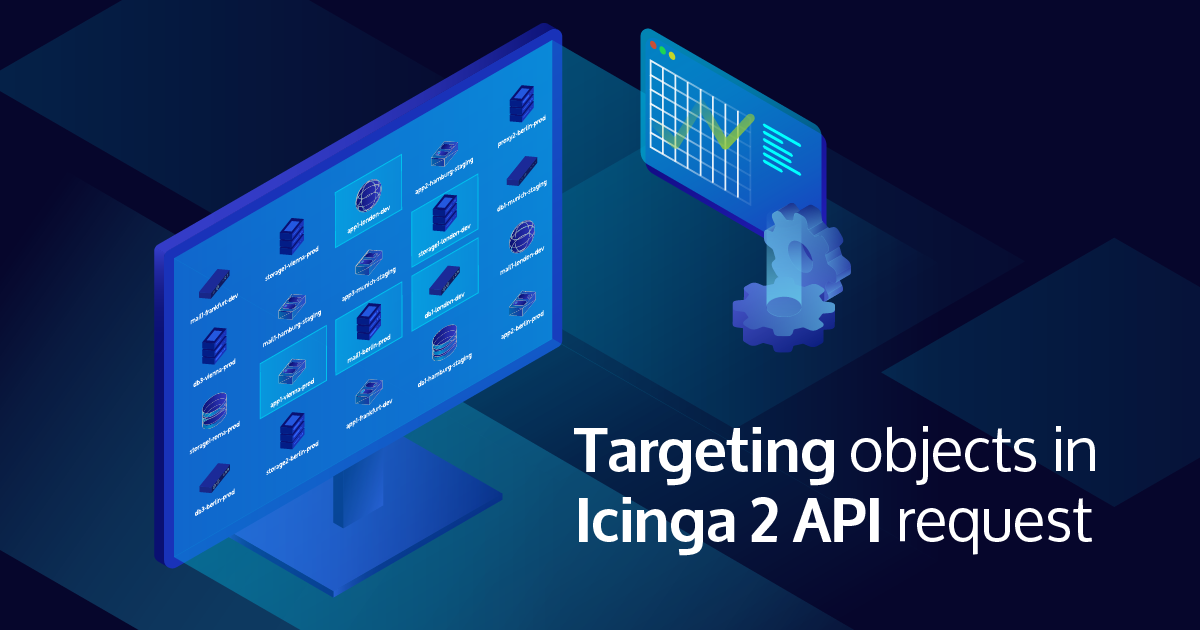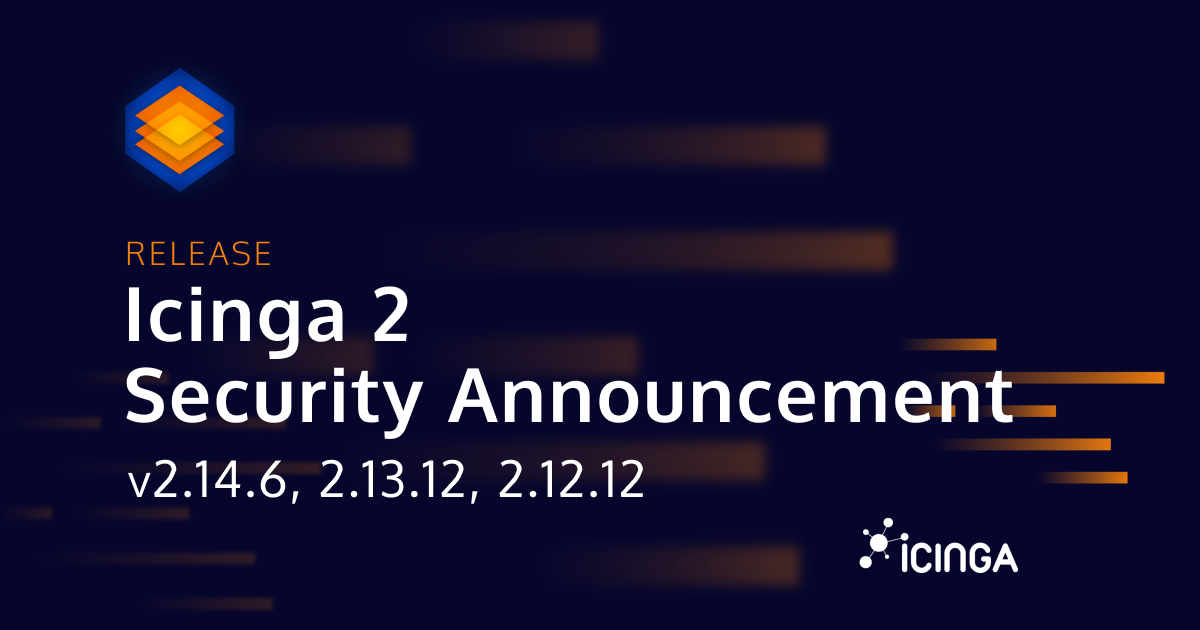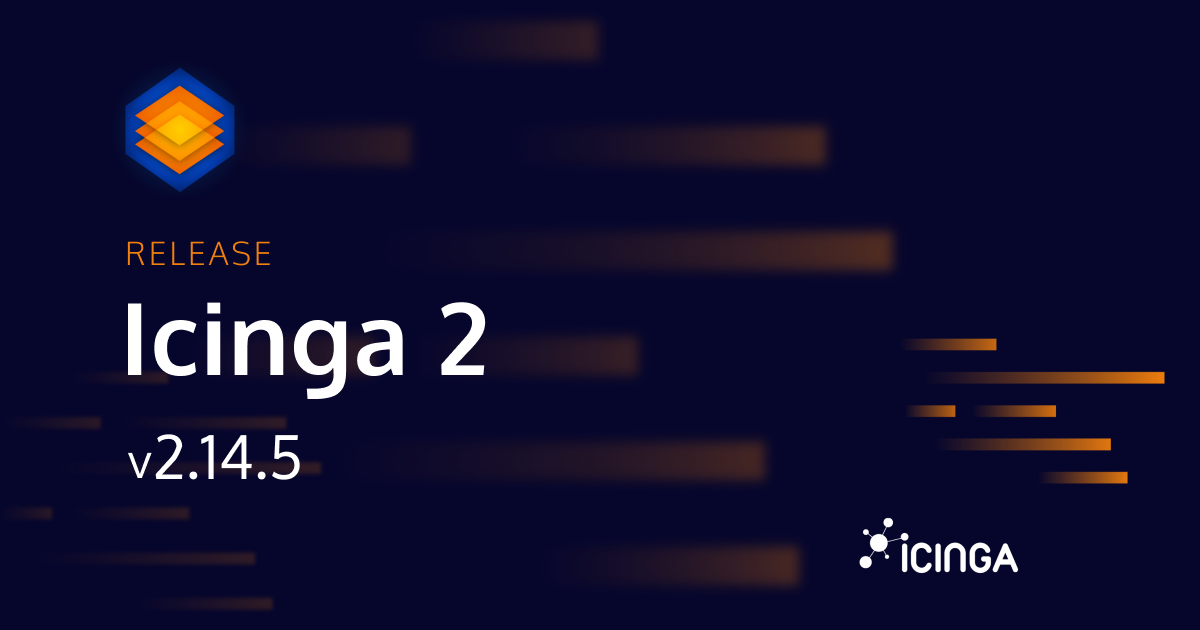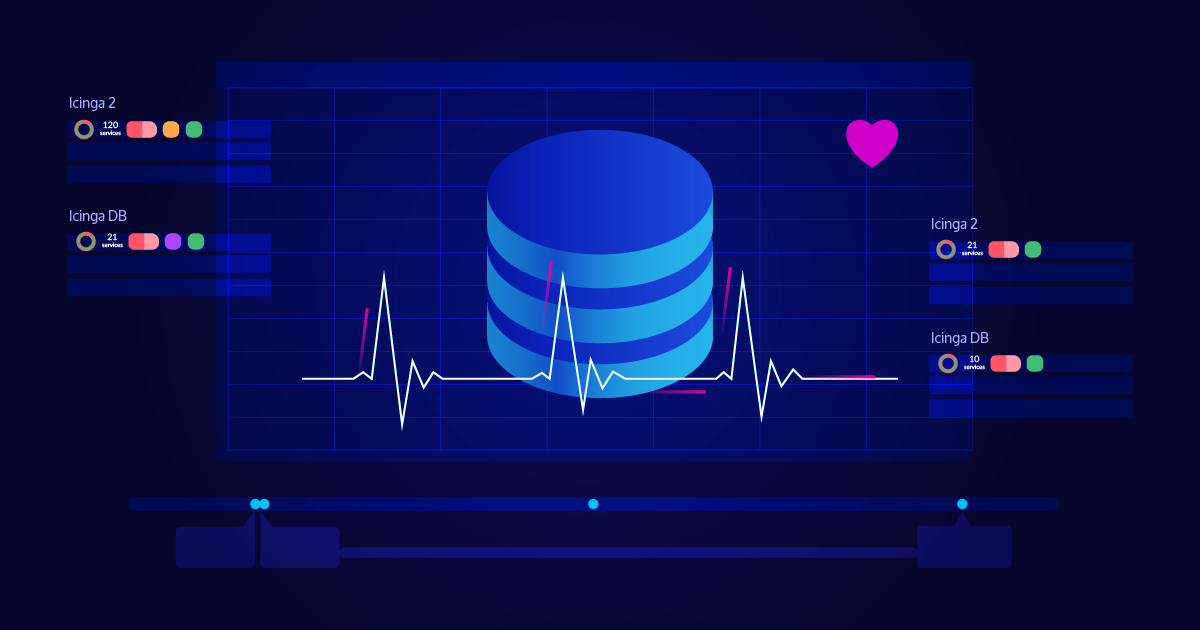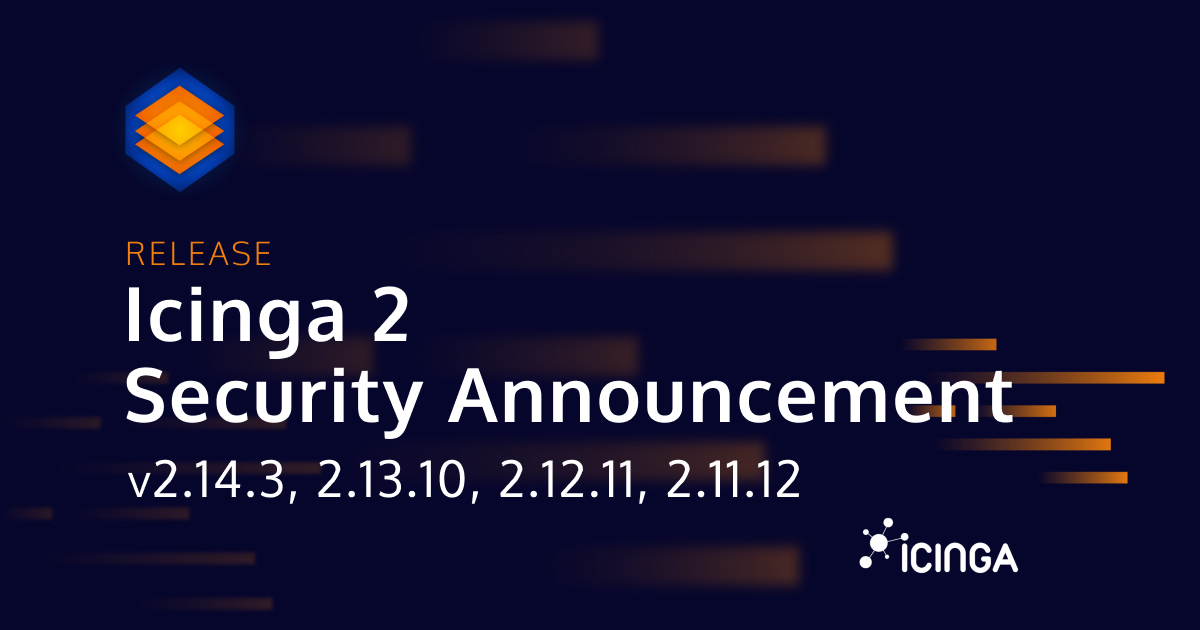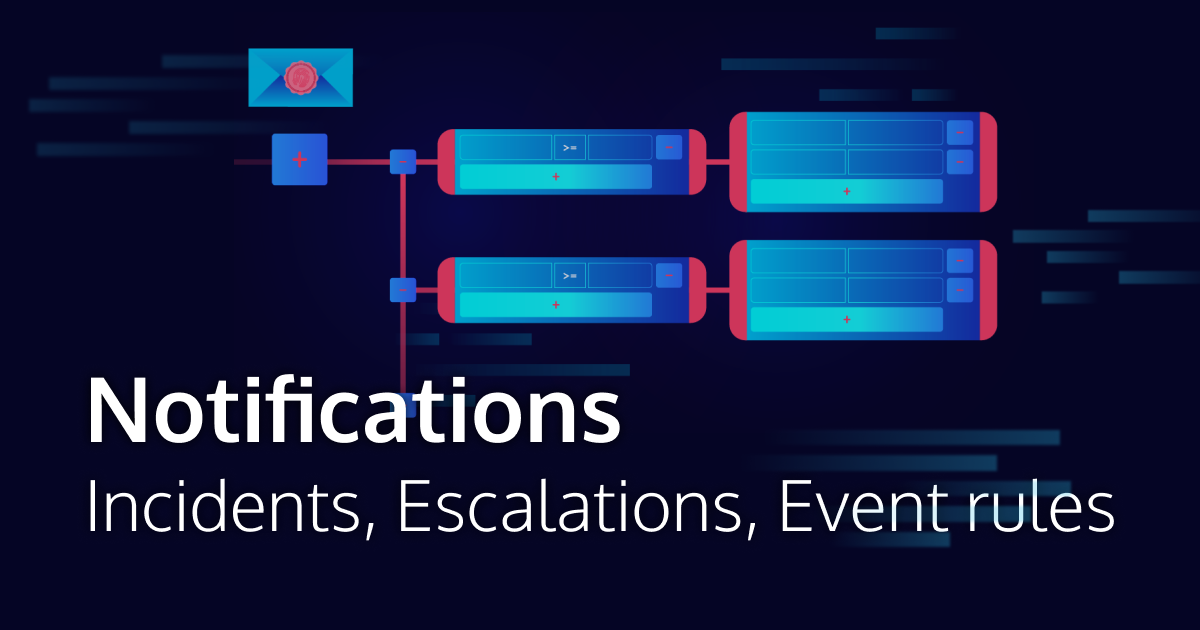Toady, we are releasing multiple new versions of Icinga 2 and Icinga for Windows, all of them fixing a file permission issue present in all installations on Windows. Impact The following paths were...
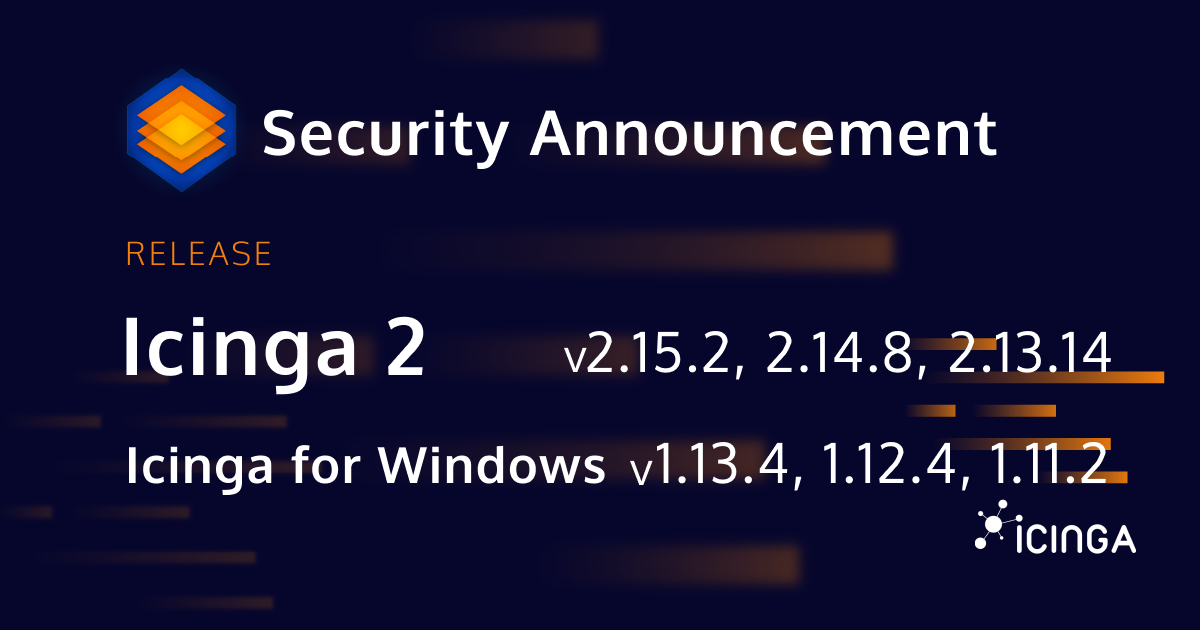
Releasing Icinga 2 v2.15.2, v2.14.8, v2.13.14 and Icinga for Windows v1.13.4, v1.12.4, v1.11.2
Toady, we are releasing multiple new versions of Icinga 2 and Icinga for Windows, all of them fixing a file permission issue present in all installations on Windows. Impact The following paths were...

Integrating Prometheus Metrics into Icinga Using check_prometheus
Introduction This article explains how to integrate metrics from Prometheus into Icinga checks using the check_prometheus plugin. There can be multiple reasons why this could be desired: Maybe you have different teams with their own monitoring systems, and you need to...
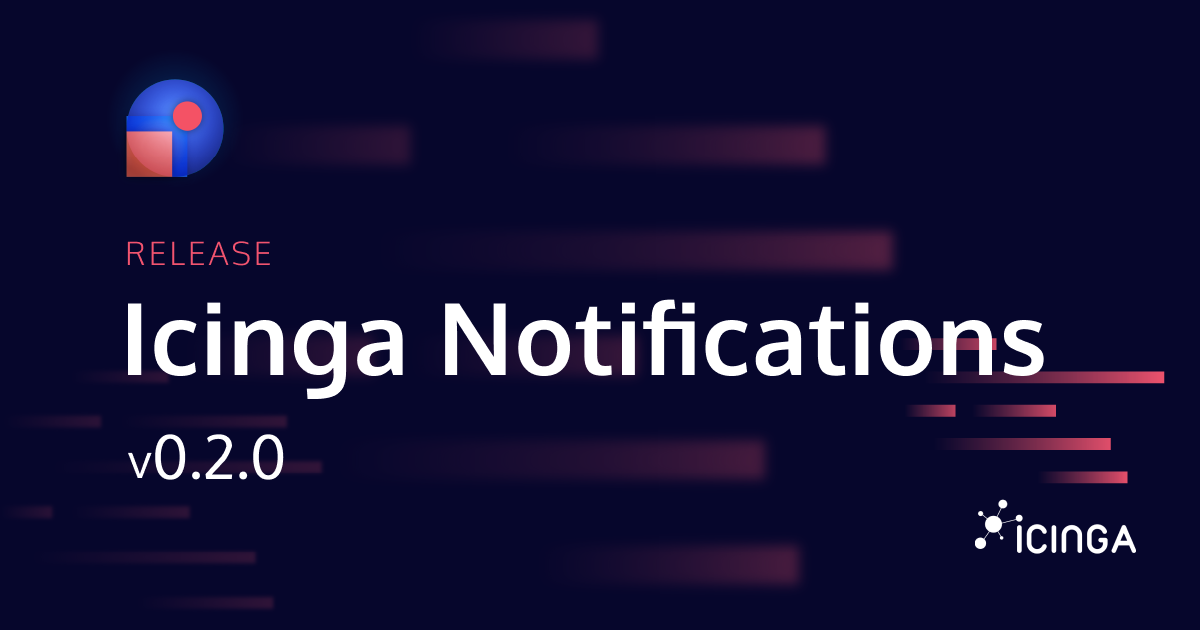
Icinga Notifications v0.2.0 Release
Some of you might have already heard about this at OSMC, or you may have received a release notification from GitHub already: our Icinga Notifications project made a step forward and we are happy to announce that version 0.2.0 is now available for you to try out. It...
Targeting hosts and services in Icinga 2 API requests
Today, we are going to take a look at the Icinga 2 API and the various ways targets can be specified for different actions, such as querying information or scheduling downtimes. This post focuses on the API request payloads themselves and assumes some familiarity with...
Critical Icinga 2 Security Releases: 2.14.6, 2.13.12, 2.12.12 (CVE-2025-48057)
Today, we are releasing security updates for Icinga 2 fixing a critical vulnerability that allowed an attacker to obtain valid certificates from the Icinga CA under certain circumstances. Please note that if Icinga 2 is built with OpenSSL 1.1.0 (released in 2016) or...
Releasing Icinga 2 v2.14.5
Today, we are announcing the release of Icinga 2 v2.14.5. It fixes a regression that was introduced in v2.14.4 and caused the icinga2 node setup, icinga2 node wizard, and icinga2 pki request commands to fail if a certificate was requested from a node that has to...
Monitoring the Monitoring: Demystifying the Icinga DB Health Check
In this post we will take a look at the icingadb check command built into Icinga 2 for monitoring the health of Icinga DB. If you have already configured it, this blog post will give you some insights on what it actually checks, otherwise, it showcases what useful...
Critical Icinga 2 Security Releases: 2.14.3, 2.13.10, 2.12.11, 2.11.12 (CVE-2024-49369)
Today, we are releasing security updates for Icinga 2 fixing a critical vulnerability that allowed to bypass the certificate validation for JSON-RPC and HTTP API connections. Impact The TLS certificate validation in all Icinga 2 versions starting from 2.4.0 was...
Icinga Notifications: Incidents, Escalations, and Event Rules – How to Manage Alerts Effectively
Following the Icinga Notifications beta announcement, we already had a more general post on how to get started and one going into the details of schedules. This week's blog post is a follow up in this series and will describe incidents, escalations, and event rules in...
Making Use of Previous State in Icinga2 Check Commands
When writing a custom check plugin for Icinga 2, there are situations where in addition to observing the current state of a system, taking the past into account as well can be helpful. A common case for this is when the data source provides counter values, i.e. values...
Analyzing configuration problems with Icinga 2
Today, I want to showcase an old, but still very useful, tool when it comes to analyzing and debugging an Icinga 2 configuration: the icinga2 object list command. It can be helpful in a variety of situations, for example when you want to verify that a config change...
Dependency Redundancy Groups in Icinga 2.14
Icinga 2.14 introduced a new feature that allows to better model complex dependencies between your hosts and services: redundancy groups. Let's take an e-mail server as an example. In order to deliver outgoing messages, it has to look up the addresses of the...

Subscribe to our Newsletter
A monthly digest of the latest Icinga news, releases, articles and community topics.


